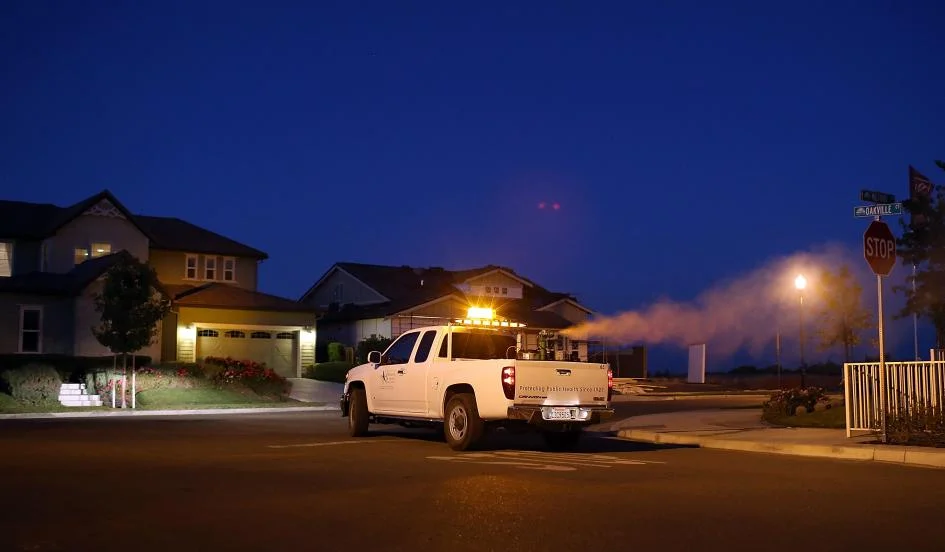Fighting West Nile Shouldn't Mean Poisoning People
Originally published in Newsweek
On September 21, at around 9 p.m., Keegan Stephan was biking home through the Sunnyside neighborhood of Queens, New York, when he decided to stop at a Mexican food truck to grab a quick dinner. As he waited in line with about five other customers, a police car crept by, warning pedestrians through a loudspeaker to get indoors immediately because pesticides for West Nile virus control were being administered. A truck trailed behind the police, spraying a fine mist into the air.
Local governments are supposed to give residents ample warning that pesticides will be sprayed in their area. A spokesman from the New York City Department of Health and Mental Hygiene tells Newsweek, “Our team does not spray in the presence of residents.” Yet as his food was being prepared, Stephan watched a thick cloud of pesticides waft up and then land on him and his fellow customers. “They sprayed people and food in the open air,” he says. “They literally gave us seconds to go anywhere because the truck was right behind the cop car.”
West Nile is usually transmitted to humans when an infected mosquito bites them. In rare cases, it can lead to serious neurological illnesses, such as encephalitis. However, according to the Mayo Clinic, fewer than 1 percent of people who are infected become severely ill. About 70 to 80 percent of people infected will never display symptoms, and many others experience only mild flu-like symptoms. In addition, the average person’s risk of contracting West Nile is extremely low; even in areas where the virus is present, only a very small number of mosquitoes carry the virus. In 2015 (as of September 29), there have been just 17 reported cases of West Nile in the state of New York and one death out of a population of about 20 million people. Nationally, there have been 1,028 cases and 54 deaths out of more than 320 million people.
Sprayings, on the other hand, are very common; the NYC health department sprayed neighborhoods across the city 22 times from June through September this year, and New York is just one of many places in the U.S. where pesticides are sprayed widely. Across the country, from counties all over California to Chicago and Dallas, communities and residential areas are being sprayed with an array of pesticides for mosquito control. Read more...
